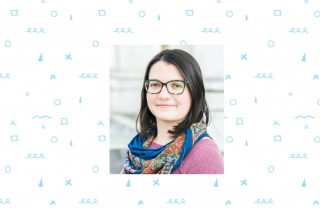Discovering New Career Paths: Hannah Fattor’s Job Search Success Story

Share
In this job search success story, Hannah Fattor shares how she overcame rejection by building a portfolio and tapping into her network for career path ideas.
What do you do for a career? Who do you work for?
I initially wanted to work in performing arts organizations as a dramaturg, which is a position that relies heavily on research and writing. My priority was to stay in the Pacific Northwest, though, and as I looked into local dramaturgy jobs, I saw that I would need to gain some administrative experience so I could play many roles within an organization. I took administrative temp jobs for a few years while building sets and teaching at a local children’s theater, and I kept hearing about the importance of applying for grants to fund theaters. Grant writing appealed to me because I like being able to explain a project and why I am excited about it, and grant writing includes convincing people that a cause I care about is worth funding. I began looking for jobs in the broader nonprofit world and gradually gained more experience in grant writing and donor database management in the roles I sought out. I currently write grants and proposals for Junior Achievement as the Development Coordinator, as I have a strong belief in the value of the youth education programs they offer. I also do volunteer grant writing for a couple of small, local organizations with services I believe in supporting.
How long did it take you to find this job?
It took me two years to feel like I had built my administrative, researching, and writing skills enough that I could tackle a job in development. When I felt ready to make the leap into nonprofit development, I spent eight months searching and applying for jobs that included grant writing, donor database management, and communications. I started my job at Junior Achievement in mid-September 2019.
How did you find your job? What resources did you use? What tool or tactic helped the most?
I spent a lot of time searching on Mac’s List for grant writing and development roles. I initially spoke with a few grant writers to get a sense of the industry and how important it was to build my development experience. I also would tell people, if my job came up in conversation, that I was interested in grant writing and development. Letting people know that I was looking for jobs in a specific industry was helpful because almost everyone I talked to, from my aunt to strangers at parties, was eager to tell me about possible contacts they had or jobs they knew of that included grant writing or development. My mom and my friends encouraged me to keep applying and helped me hone my cover letter and resume.
What was the most difficult part of your job search? How did you overcome this challenge?
Early in my job searching, I realized that I had to have the background to prove that I am a capable employee. I got a lot of rejections because I was trying to get my first development job when I only had a small amount of prior experience. I had to be patient and take time to build my portfolio of well-written proposals and examples of my database management skills and funding communications. It was important to have tangible evidence of my value as an employee and coworker. Ultimately, I believed in my own abilities and kept applying to nonprofits that had strong missions that I supported. I was sure I would find a fulfilling, interesting, creative career as a nonprofit grant writer and development coordinator, and my persistence paid off.
What is the single best piece of advice you would offer other job-seekers?
Talk with other people about what your dream job would look like. Even if you do not have a clear idea of the industry you want to work in or a name for the work you want to do, talking about the individual tasks you enjoy can sometimes lead you to a career you had never heard of. There are a lot of job titles and job descriptions, so saying aloud what you want to do with your career can help generate ideas, and other people can help you brainstorm what to search for.
Why do you love your job?
I thrive on a combination of variety and routine. Creating grant proposals involves a lot of creativity within a strict structure, and I like finding ways to answer routine questions while also communicating my passion for a project or organization. As a Development Coordinator, I get to work on small details and with a lot of data, and I have a clear calendar of deadlines, but I also get to build social media campaigns and fundraising communications as opportunities arise. Our organization also puts out an informational podcast that I produce, which has been a wonderful opportunity to build on a hobby I started a few years ago. I work hard to stay connected to Junior Achievement’s mission, too. Having a connection to my work is important because I want that personal passion to come through in the proposals I write.
Everyone’s job search story is different, but each individual story can inspire and empower others who are on their own unique path. We love to hear how our readers have found rewarding careers in Portland, and we want to share these stories with you to inspire you in your job search and to help us all better understand the local job market!